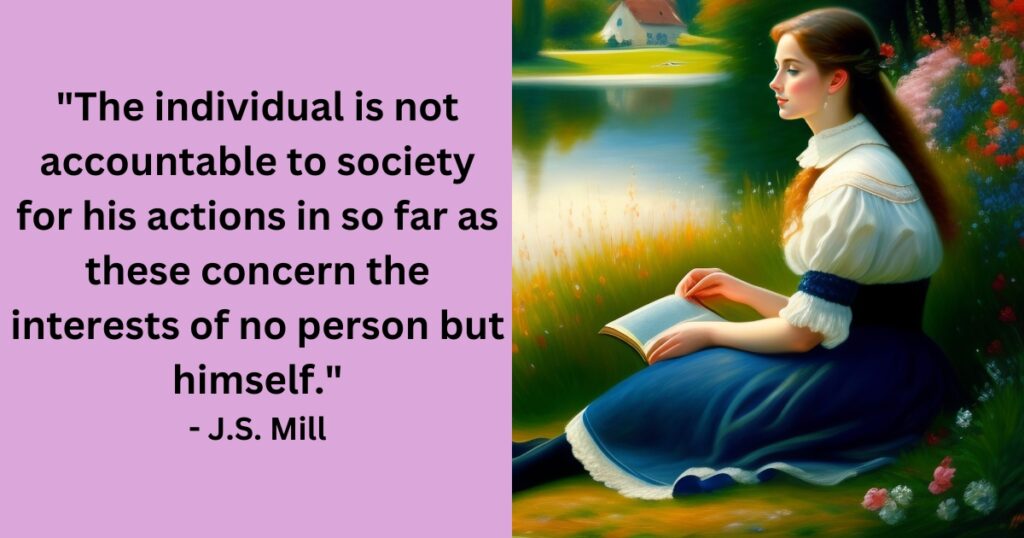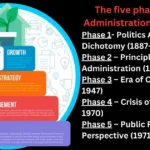If you’re interested in J. S. Mill’s concept of liberty as a political theory or philosophy, then you’ve got the right article today, particularly in discussions of individual freedom and political liberalism. In this section, we will explore J.S. Mill’s concept of liberty, examining its key ideas and impact on modern society.
Key Takeaways:
- John Stuart Mill was a 19th-century philosopher who made significant contributions to political philosophy and utilitarianism.
- Mill’s concept of liberty is centered around the idea of individual freedom.
- The harm principle, which dictates that individuals should be free to act as they please unless their actions cause harm to others, is a key component of Mill’s philosophy.
- Mill believed that liberty was not just an inherent right, but also a means to human development.
- Mill’s concept of liberty has significant implications for democratic societies, particularly in relation to freedom of expression and political participation.
- Despite criticisms and alternative interpretations, Mill’s concept of liberty remains relevant in contemporary society and continues to shape public policy and political discourse.
J.S. Mill: A Brief Introduction and Background
Before we delve into J.S. Mill’s concept of liberty, it’s important to understand the philosopher and his background. John Stuart Mill was a prominent 19th-century philosopher whose contributions to political philosophy and utilitarianism continue to influence contemporary thought. Mill was born in London in 1806 and was educated by his father, James Mill, who was also a philosopher and political theorist.
Mill’s upbringing was steeped in the traditions of liberal thought, and his father taught him to prioritize rationality and the pursuit of knowledge above all else. As a result, Mill was a prodigious student and began publishing essays on a variety of topics at an early age. His interests spanned philosophy, economics, politics, and social justice, and his work became well-known throughout Europe and the United States.
Mill’s most famous works include “On Liberty,” “Utilitarianism,” and “The Subjection of Women.” In these works, he laid out his ideas on individual liberty, political rights, and the role of the state in regulating social behavior. Mill’s philosophy has had a profound impact on modern political theory and continues to shape the way we think about individual rights and freedoms.
Mill’s influence extends far beyond academia. He was a vocal advocate for social justice and was involved in many political causes of his time, including the abolition of slavery and women’s suffrage. Mill’s commitment to liberal ideals and his belief in the power of individual freedom continue to inspire people around the world to fight for justice and equality.
The Foundation of J. S. Mill’s Concept of Liberty: Individual Freedom
At the center of J.S. Mill’s concept of liberty lies the notion of individual freedom. Mill believed that individuals are the best judge of their own interests and that they should be free to pursue their goals and aspirations without interference from others.
“The only purpose for which power can be rightfully exercised over any member of a civilized community, against his will, is to prevent harm to others. His own good, either physical or moral, is not a sufficient warrant.”
This quote summarizes Mill’s famous harm principle, which states that individuals should be free to act as they please unless their actions cause harm to others. This principle is crucial to understanding Mill’s philosophy of liberty. It serves as a balancing mechanism, ensuring that personal freedom is preserved while preventing harm to society.
- Mill’s emphasis on individual freedom was a direct response to the authoritarian tendencies of his time. In contrast to conservative and paternalistic views, Mill argued that people should be trusted to make their own decisions and live their own lives.
- His philosophy of individual liberty extends beyond traditional notions of political freedom and encompasses a wide range of human activities, including intellectual pursuits, artistic expression, and personal relationships.
By granting individuals the freedom to pursue their own interests and aspirations, Mill believed that society would benefit from increased personal growth, creativity, and innovation. His concept of liberty is not merely a means of protecting basic rights, but also a way of promoting human flourishing and progress.

The Harm Principle: Balancing Liberty and Harm
One of the most influential aspects of J.S. Mill’s concept of liberty is his “harm principle.” According to this principle, individuals should be free to act as they please, unless their actions cause harm to others. This principle serves as a vital balancing mechanism, ensuring that personal freedom is preserved while preventing harm to society.
Mill believed that individuals should be free to pursue their own interests, as long as they do not interfere with the rights of others. For example, individuals have the right to free speech, but they cannot use that right to incite violence or hatred towards others. Additionally, individuals have the right to choose their own religious beliefs, but they cannot use those beliefs as justification for discrimination or harm against others.
The harm principle has had a significant impact on the development of liberal thought and has helped shape many modern legal systems. It has been used to defend individual rights, such as the right to privacy and the right to engage in consensual activities, while also allowing for government intervention when harm to others is possible.
While the harm principle has been influential, it is not without its critics. Some argue that the principle is too vague and subjective, making it difficult for policymakers to apply it consistently. Others argue that the principle can be used to justify limiting individual freedom in ways that may not actually prevent harm to others.
Despite these criticisms, the harm principle remains a fundamental aspect of Mill’s philosophy of liberty, emphasizing the importance of balancing individual freedom with the protection of society from harm.

Liberty as a Means to Human Development
At the core of J.S. Mill’s concept of liberty lies the idea of individual freedom. According to Mill, individuals who are granted the freedom to pursue their own interests and aspirations tend to provide tremendous benefits to society and lead to personal growth, creativity, and the advancement of society as a whole.
In his essay “On Liberty,” Mill argued that society as a whole benefits when individuals are free to pursue their own interests, since this leads to the discovery of new ideas, new products and new models of society. Mill believed that creativity thrives in an environment that provides individuals with the freedom to express themselves and pursue their dreams, leading to the development of human potential and advancing the overall social progress.
Mill also highlighted the importance of education in developing individuals’ potential. He believed that education should not just be about acquiring knowledge but should also provide individuals with the skills to develop their critical thinking, creativity, and independence. By fostering these qualities, individuals are better equipped to make the most of their personal freedom and contribute significantly to the development of society as a whole.
Mill’s emphasis on the relationship between individual freedom and human development highlights the potential benefits of his concept of liberty beyond the preservation of basic rights. This idea also places an important responsibility on society to ensure that individuals have access to education and resources to develop their talents and abilities.
The Role of Liberty in a Democratic Society
John Stuart Mill’s concept of liberty has profound implications for democratic societies. According to Mill, for democracy to function effectively, individuals must have the freedom to express their opinions and participate in public discourse. In other words, the free exchange of ideas and the ability to voice one’s views without fear of censorship or retribution is essential for democracy to thrive.
Mill believed that true progress could only be achieved through open dialogue and debate, where ideas are subjected to scrutiny and criticism. Therefore, democratic societies must allow for a diversity of opinions and viewpoints, even those that may be unpopular or controversial. This understanding of liberty as a prerequisite for a functioning democracy has had a significant impact on political theory and influenced contemporary debates on freedom of speech and political participation.
However, as with any concept, Mill’s philosophy of liberty is not without its limitations and controversies. Some argue that the emphasis on individual freedom may lead to a neglect of the collective good, and that certain forms of speech, such as hate speech, should be restricted in the interest of protecting marginalized groups. Others believe that the current discourse on free speech in democratic societies has become overly polarized and that a more nuanced approach is needed to balance individual liberties with societal well-being.
The Role of Liberty in Political Participation
Central to Mill’s concept of liberty is the idea that individuals should be free to engage in political participation. This includes not only the ability to vote and hold public office but also the freedom to organize and participate in political protests and movements. According to Mill, political participation is essential for the functioning of democracy and for ensuring that the interests of all members of society are represented.
However, the exercise of political freedoms is not always smooth or uncontroversial. In recent years, there have been debates and concerns over the role of money in politics, the impact of social media on political discourse, and the potential influence of foreign actors on domestic politics. These issues illustrate the ongoing challenges of reconciling individual liberties with the need for fair and transparent political processes.
The Importance of Protecting Civil Liberties
In addition to political participation, Mill believed that protecting civil liberties was an essential component of his concept of individual liberty. This includes rights such as freedom of speech, association, and religion, as well as protections against arbitrary imprisonment and torture.
However, the implementation of these protections is not always consistent or universal. In some societies, laws and policies limit civil liberties in the name of national security or social stability. In other cases, the enforcement of civil liberties may be uneven, with marginalized groups experiencing greater scrutiny and restrictions on their freedoms. These challenges highlight the ongoing need for vigilance and advocacy to protect civil liberties.
The Criticisms and Interpretations of Mill’s Concept of Liberty
Despite the significant influence John Stuart Mill’s concept of liberty has had on modern political thought, his philosophy is not without its flaws and criticisms. One common critique is that his emphasis on individual freedom neglects the importance of communal or social obligations. This can lead to the exploitation of vulnerable groups by the privileged.
Another criticism is that the harm principle is subjective and open to interpretation, leading to inconsistencies in its application. Some argue that harm can be difficult to define and measure objectively, and that the principle can be used to justify censorship and restriction of individual rights.
Moreover, some critics argue that Mill’s concept of liberty is too focused on negative liberty, or the absence of constraints, and neglects positive liberty, or the presence of conditions necessary for individuals to exercise their freedom. This can limit the potential benefits of liberty, such as equal access to resources and opportunities, and the ability to participate fully in society.
“The main deficiency of Mill’s view of liberty is to lay too much emphasis on the individual and to neglect the social aspect of human nature.”
Despite these criticisms, Mill’s concept of liberty continues to be influential in contemporary political discourse and policy-making. Alternative interpretations of his philosophy have emerged, seeking to address these critiques and provide a more nuanced understanding of his ideas.
For example, some scholars advocate for a more communitarian approach to liberty, emphasizing the importance of social responsibilities and obligations in addition to individual freedom. Others have proposed a positive liberty framework that includes access to resources and opportunities necessary for individuals to exercise their freedom fully.
Ultimately, the criticisms and alternative interpretations of Mill’s concept of liberty remind us of the complexity of political philosophy and the challenges of balancing individual rights with the needs of society as a whole.
Contemporary Relevance of Mill’s Concept of Liberty
John Stuart Mill’s concept of liberty has had a significant impact on modern society. His philosophy has influenced contemporary thinking about individual rights, freedom of expression, and the balance between personal liberty and societal well-being.
One of the key ways in which Mill’s ideas continue to be relevant is in discussions and debates about the limits of free speech. Mill argued that free speech is essential for the discovery and dissemination of truth, and that even unpopular or offensive opinions should be protected. This understanding of free speech has become a cornerstone of democratic societies, and forms the basis for laws and policies protecting freedom of expression.
Mill’s concept of liberty has also influenced discussions about the role of government in regulating economic activity. He argued that while the government has a responsibility to ensure the well-being of its citizens, it should not interfere with individual economic liberty unless it is necessary to prevent harm to others. This idea has informed debates about economic regulation, such as antitrust laws and consumer protection regulations.
Furthermore, Mill’s emphasis on the importance of individual freedom has had a profound impact on civil rights movements. His philosophy has been invoked in support of movements such as marriage equality, reproductive rights, and protections against discrimination based on gender, race, and sexual orientation.
Overall, Mill’s concept of liberty remains relevant in contemporary society, providing a framework for understanding and promoting individual rights, societal well-being, and democratic governance.
You Can Read: Isaiah Berlin’s Two Concepts of Liberty: A Dynamic Guide.
The Role of J.S. Mill’s Concept of Liberty in Public Policy
J.S. Mill’s concept of liberty has played a significant role in shaping public policy in modern democratic societies. By emphasizing the importance of individual freedom and the harm principle, Mill’s philosophy provides a framework for crafting policies that balance personal liberty with societal well-being.
One area where Mill’s concept of liberty has been particularly influential is criminal justice reform. The harm principle has been used to argue against harsh punishments and the criminalization of victimless crimes, highlighting the importance of treating individuals with dignity and respect even when they have violated the law. This approach has led to the development of alternative sentencing programs and restorative justice initiatives that prioritize rehabilitation over punishment.
Mill’s concept of liberty also has implications for civil rights and social justice. By recognizing the inherent worth and dignity of all individuals, regardless of their race, gender, or sexual orientation, Mill’s philosophy provides a justification for policies that seek to promote equality and eliminate discrimination. For example, affirmative action programs and anti-discrimination laws aim to create a more equal and just society by ensuring that all individuals have equal access to opportunities and resources.
In the realm of economic policy, Mill’s concept of liberty has been used to inform debates about regulation and taxation. While Mill recognized the importance of individual freedom in economic matters, he also believed that government intervention was necessary to prevent monopolies and ensure fair competition. This belief has been reflected in policies such as antitrust laws and consumer protection regulations, which seek to promote economic liberty while safeguarding against abuses of power.
In conclusion, J.S. Mill’s concept of liberty has had a profound influence on public policy in democratic societies. By emphasizing the importance of individual freedom, the harm principle, and the essential role of liberty in human development, Mill’s philosophy provides a framework for crafting policies that promote both personal liberty and societal well-being. Understanding the practical implications of Mill’s concept of liberty is essential for navigating the complexities of governance in a democratic society and promoting the flourishing of all individuals and communities.
Conclusion
In conclusion, you have gained valuable insights into J.S. Mill’s concept of liberty, including the ideas of individual freedom, the harm principle, and the role of liberty in human development and democratic societies. Mill’s philosophy has had a profound impact on political theory and continues to shape contemporary debates on individual rights and societal well-being. Despite criticisms and alternative interpretations, Mill’s concept of liberty remains relevant in modern society. By understanding his philosophy, you gain a greater appreciation for the importance of balancing personal freedom with harm prevention and the benefits of allowing individuals to pursue their own interests and aspirations. In addition, Mill’s ideas have practical implications for crafting public policies that respect individual rights while promoting the greater good. By applying his principles to policy areas such as criminal justice, civil rights, and economic regulation, society can benefit from the enduring legacy of Mill’s concept of liberty. Overall, understanding J.S. Mill’s philosophy provides valuable insights into the complexities of human nature and the importance of safeguarding individual rights in a democratic society.
People Also Read: Liberty Is a Key Concept of in Political Science: A Powerful Guide
FAQ
Q: What is the concept of liberty according to J.S. Mill?
A: J.S. Mill’s concept of liberty emphasizes individual freedom, allowing individuals to live their lives as they see fit as long as they do not harm others.
Q: What is the harm principle in relation to Mill’s concept of liberty?
A: The harm principle states that individuals should be free to act as they please unless their actions cause harm to others. It serves as a balance between personal freedom and preventing harm to society.
Q: How does liberty contribute to human development according to Mill?
A: Mill believed that liberty is not only a right but also a means to personal growth, creativity, and societal advancement. Granting individuals the freedom to pursue their interests and aspirations leads to human development.
Q: How does Mill’s concept of liberty relate to democracy?
A: Mill argued that liberty is essential for a functioning democracy. It allows individuals to express their opinions and participate in public discourse, shaping political theory and influencing debates on freedom of speech and political participation.
Q: What are some criticisms and interpretations of Mill’s concept of liberty?
A: Mill’s concept of liberty has faced criticism and alternative interpretations. This section explores different perspectives to provide a comprehensive understanding of the complexities and limitations of his philosophy.
Q: How is Mill’s concept of liberty relevant in contemporary society?
A: Despite being formulated in the 19th century, Mill’s concept of liberty continues to be relevant today. This section examines how his ideas have influenced modern thinking about individual rights, freedom of expression, and the balance between personal liberty and societal well-being.
Q: How does Mill’s concept of liberty inform public policy?
A: This section explores how Mill’s ideas have been applied in various policy areas, such as criminal justice, civil rights, and economic regulation. Understanding the practical implications of his concept of liberty helps navigate the complexities of governance in a democratic society.










